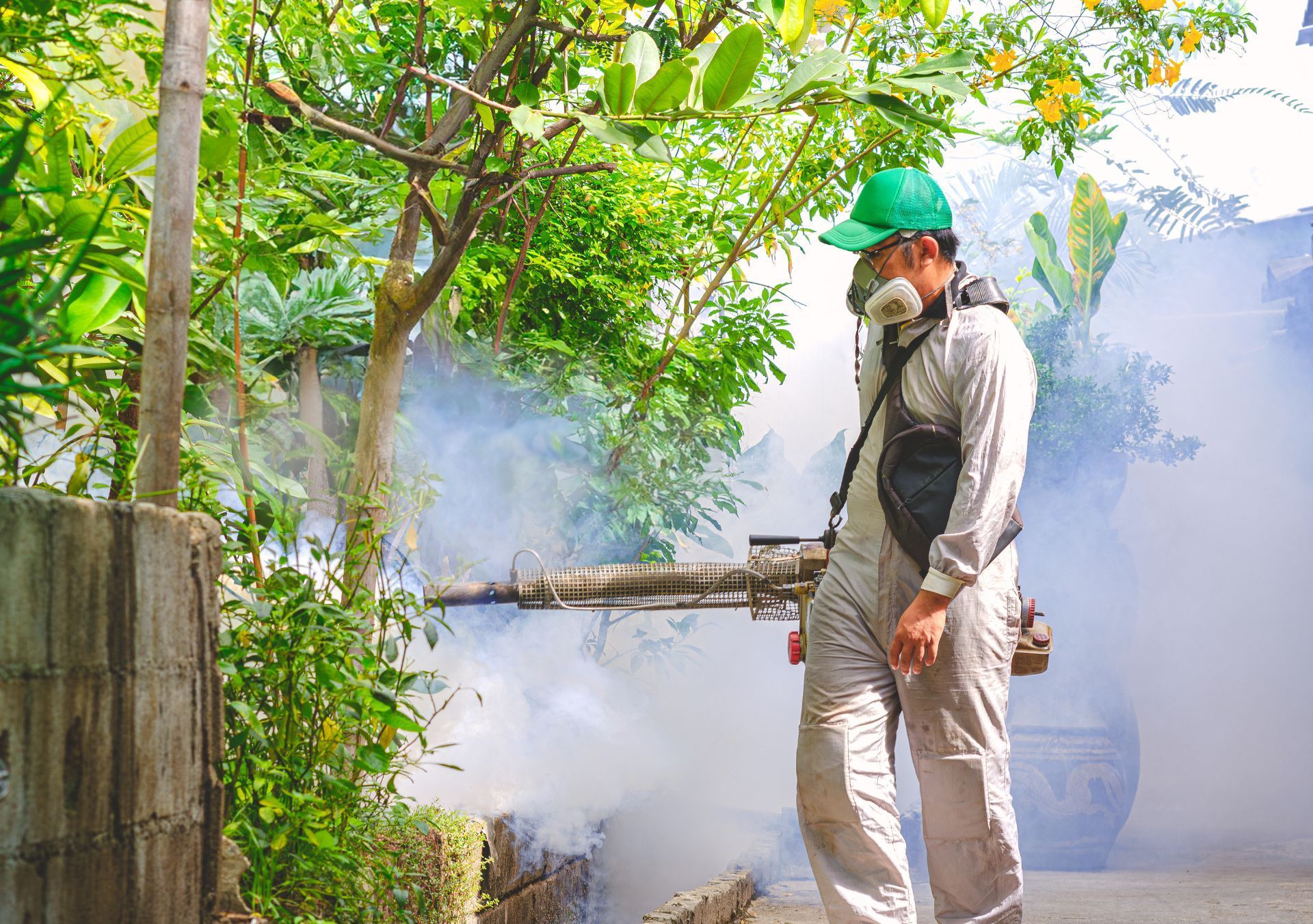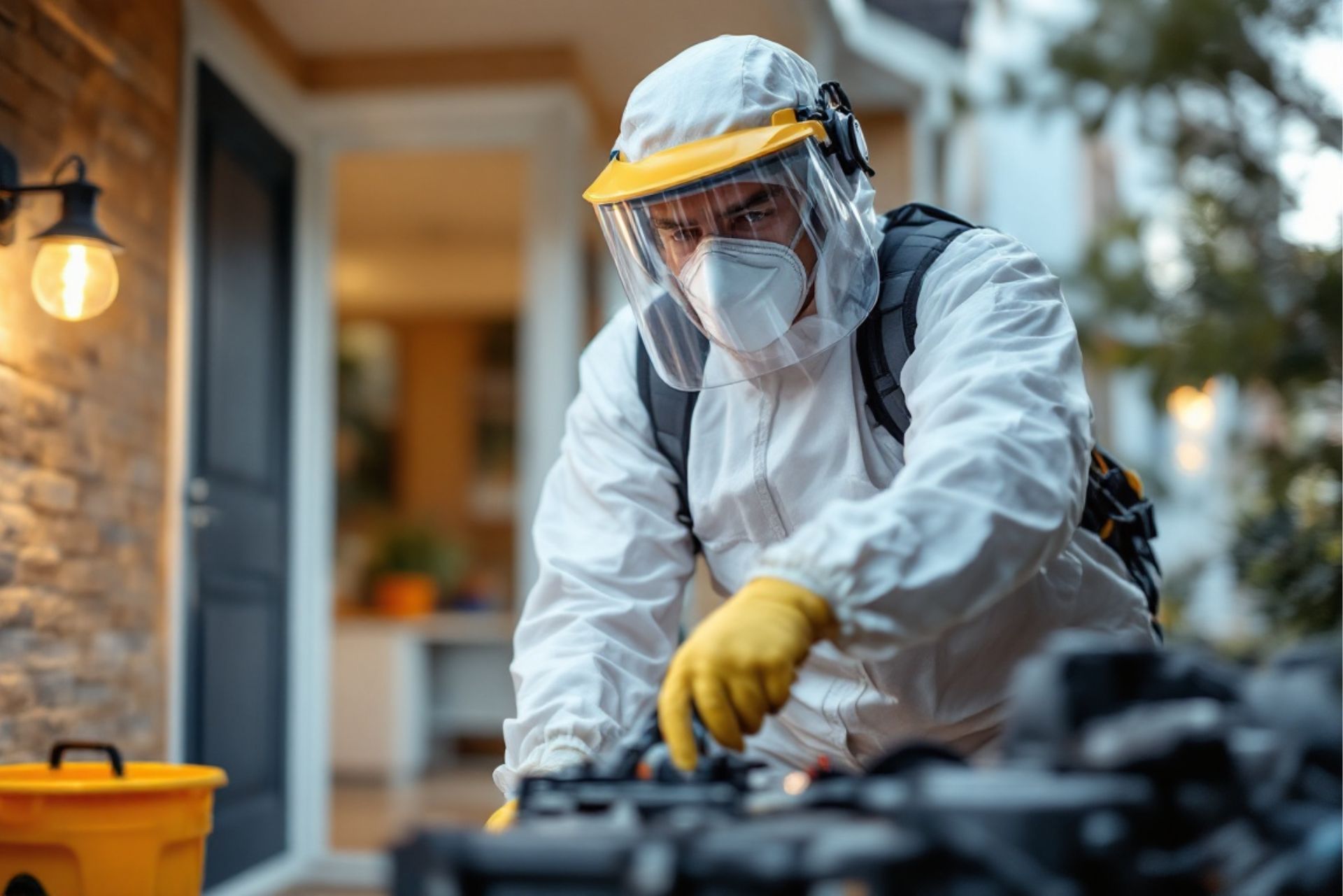Arizona Pest Control Contractor Insurance
See How We're Different:
or Call Us:(480) 526-3222

Most Common Business Policies
Index
Contact Us
Operating a pest control business in Arizona comes with its unique set of challenges and responsibilities. Among these, ensuring adequate insurance coverage is paramount. Pest control contractors face various risks, from property damage to liability claims. This article will explore everything you need to know about pest control contractor insurance in Arizona, including types of coverage, legal requirements, and tips for choosing the right policy.
Understanding Pest Control Contractor Insurance
Pest control contractor insurance is designed to protect businesses from potential financial losses due to various risks associated with pest management services. This insurance can cover a wide range of situations, making it essential for anyone in the pest control industry. The nature of pest control work often involves entering clients’ homes or businesses, which inherently carries risks. Therefore, having comprehensive insurance not only safeguards the contractor but also reassures clients that they are working with a responsible and trustworthy professional.
What Does Pest Control Contractor Insurance Cover?
Insurance coverage for pest control contractors typically includes several key components:
- General Liability Insurance: This covers bodily injury and property damage claims arising from your business operations. For instance, if a client trips over your equipment and gets injured, this insurance can help cover medical expenses and legal fees. It also protects against claims related to property damage, such as if a chemical spill inadvertently damages a client’s property.
- Professional Liability Insurance: Also known as errors and omissions insurance, this protects against claims of negligence or inadequate work. If a pest control treatment fails and results in damages, this insurance can help defend against claims. It is particularly important in situations where a pest infestation persists despite treatment, leading to client dissatisfaction and potential lawsuits.
- Commercial Auto Insurance: If vehicles are used for business purposes, this insurance covers accidents and damages that occur while driving for work. This is crucial for pest control businesses that rely on transportation to reach clients. Additionally, it can cover damages to the vehicle itself, ensuring that the business can maintain its operations without interruption.
- Workers' Compensation Insurance: This is mandatory in Arizona for businesses with employees. It provides coverage for medical expenses and lost wages for employees injured on the job. This type of insurance not only protects the employees but also shields the business from potential lawsuits related to workplace injuries.
Why Is Insurance Important for Pest Control Contractors?
Insurance is not just a legal requirement; it is a vital component of risk management for pest control contractors. Here are a few reasons why having the right insurance is crucial:
- Financial Protection: Insurance helps mitigate the financial impact of unexpected events, such as accidents or lawsuits, allowing businesses to continue operations without severe financial strain. This is especially important in the pest control industry, where the potential for claims can arise from various incidents, ranging from equipment malfunctions to client misunderstandings.
- Legal Compliance: Certain types of insurance, like workers' compensation, are legally required in Arizona. Failing to comply can result in hefty fines and legal issues. Furthermore, maintaining proper insurance coverage can protect contractors from being held liable for damages that may occur during the course of their work.
- Client Trust: Having insurance demonstrates professionalism and reliability, which can enhance client trust and confidence in your services. Clients are more likely to choose a pest control contractor who can provide proof of insurance, as it indicates a commitment to safety and accountability.
Moreover, in an industry where reputation is paramount, being insured can differentiate a contractor from competitors. Clients often seek assurance that their pest control provider is prepared for any eventuality, and having comprehensive insurance coverage can serve as a strong selling point. Additionally, insurance can provide peace of mind for contractors themselves, allowing them to focus on delivering quality service without the constant worry of potential liabilities looming over their heads.

Legal Requirements for Pest Control Contractors in Arizona
Understanding the legal landscape surrounding pest control contractor insurance in Arizona is essential. Certain regulations dictate the minimum insurance requirements for businesses operating in this field. Compliance with these regulations not only helps in protecting the business but also ensures the safety and well-being of clients and employees alike.
Workers' Compensation Insurance
In Arizona, businesses with one or more employees are required to carry workers' compensation insurance. This insurance covers medical expenses and lost wages for employees who are injured while performing their job duties. Not having this coverage can lead to significant penalties and legal repercussions. Furthermore, it fosters a safer work environment, as it encourages employers to prioritize employee safety and adhere to industry best practices. It is also worth noting that in the event of a workplace accident, having this insurance can protect the business from lawsuits, as it typically limits the employee's ability to sue the employer for negligence.
General Liability Insurance
While
general liability insurance is not legally mandated, it is highly recommended for pest control contractors. This coverage protects against claims related to property damage or bodily injury that may occur during the course of business operations. For instance, if a pest control technician accidentally damages a client's property while applying treatments, general liability insurance can cover the costs of repairs. Additionally, this insurance can also protect against claims arising from advertising injuries, such as false advertising or copyright infringement, which can be particularly relevant in a competitive market where contractors vie for client attention. By investing in general liability insurance, pest control contractors can not only safeguard their financial interests but also enhance their credibility and trustworthiness in the eyes of potential clients.
Types of Coverage Available
When selecting insurance for a pest control business, it is crucial to understand the various types of coverage available. Each type serves a different purpose and can help mitigate specific risks. Understanding these options allows business owners to tailor their insurance policies to fit the unique needs of their operations, ensuring they are adequately protected against potential liabilities.
General Liability Insurance
This is one of the most common forms of insurance for any contractor, including pest control operators. It protects against third-party claims for bodily injury and property damage. For example, if a client claims that your treatment caused damage to their property, general liability insurance can cover legal fees and damages awarded in court. Additionally, this coverage can also extend to incidents that occur on your business premises, providing peace of mind when clients visit your office or facility. Given the unpredictable nature of pest control work, having this safety net is essential for maintaining a professional reputation and financial stability.
Professional Liability Insurance
Professional liability insurance is essential for pest control contractors who provide specialized services. This coverage protects against claims of negligence, errors, or omissions in the services provided. If a pest control treatment fails and results in a client's loss, this insurance can help cover legal costs associated with defending against the claim. Furthermore, it can also cover situations where a client believes that the advice or treatment plan provided was inadequate, leading to further pest issues. As pest control methods and technologies evolve, having this insurance ensures that your business can adapt to new challenges without the fear of crippling financial repercussions.
Commercial Auto Insurance
For pest control businesses that use vehicles for their operations,
commercial auto insurance is a must. This insurance covers damages and liability in case of accidents involving business vehicles. It is different from personal auto insurance, which may not cover business-related incidents. In addition to covering accidents, commercial auto insurance can also protect against theft, vandalism, and damage to equipment stored in vehicles. Given that pest control operators often transport hazardous materials and specialized equipment, having comprehensive coverage can safeguard against unexpected events that could disrupt operations and lead to significant financial losses. Moreover, it can also provide coverage for drivers who may be using their personal vehicles for business purposes, ensuring that all aspects of your transportation needs are adequately insured.
Choosing the Right Insurance Policy
Selecting the right insurance policy for a pest control business can be daunting. However, understanding your specific needs and the options available can simplify the process.

Cost of Insurance for Tree Trimming Contractors
Assessing Your Business Needs
Before purchasing insurance, take the time to assess your business's unique needs. Consider factors such as:
- The size of your business and number of employees
- The types of services you offer
- Your client base and the potential risks associated with your work
Additionally, think about the geographical areas you serve, as different regions may have varying regulations and risks associated with pest control. For instance, operating in a densely populated urban area may expose your business to higher liability risks compared to a rural setting. Furthermore, consider the types of pests you handle; certain pests may require specialized treatments that could influence your insurance needs. By taking these factors into account, you can ensure that your policy is tailored to provide the best coverage for your specific operations.
Comparing Insurance Providers
Not all insurance providers offer the same coverage or rates. It is advisable to obtain quotes from multiple providers and compare their offerings. Look for insurers that specialize in contractor insurance, as they will have a better understanding of the specific risks associated with pest control.
When comparing providers, also consider their customer service reputation and claims process. A provider with a streamlined claims process can save you time and stress when you need to file a claim. Reading reviews and seeking recommendations from other pest control professionals can provide valuable insights into which companies are reliable and responsive. Additionally, inquire about any discounts for bundling policies or for maintaining a good safety record, which can help reduce your overall insurance costs.
Understanding Policy Exclusions
Every insurance policy has exclusions—specific situations or conditions that are not covered. It is crucial to read the fine print and understand what is and isn’t included in your policy. This knowledge can help avoid surprises when a claim needs to be filed.
Moreover, it’s essential to discuss these exclusions with your insurance agent to clarify any uncertainties. Some common exclusions in pest control insurance may include damage caused by pre-existing infestations or negligence in following safety protocols. By being aware of these exclusions, you can take proactive measures to mitigate risks and ensure that your business remains protected. Additionally, consider whether you need to purchase additional endorsements or riders to cover specific risks that may not be included in your standard policy, such as coverage for equipment breakdown or environmental damage caused by pesticide use.
The Cost of Pest Control Contractor Insurance
The cost of pest control contractor insurance can vary widely based on several factors. Understanding these factors can help business owners budget for their insurance needs.
Factors Influencing Insurance Premiums
Several factors can influence the cost of insurance premiums for pest control contractors:
- Business Size: Larger businesses with more employees may face higher premiums due to increased risk exposure.
- Type of Services Offered: Specialized services may require additional coverage, impacting the overall cost.
- Claims History: A history of claims can lead to higher premiums, as insurers view these businesses as higher risk.
Average Costs
While costs can vary, pest control contractors can expect to pay anywhere from a few hundred to several thousand dollars annually for insurance. For example, general liability insurance may cost between $400 and $1,500 annually, while professional liability insurance can range from $500 to $2,500, depending on the coverage limits and specific risks involved.
In addition to these basic insurance types, many pest control contractors may also consider adding coverage for equipment and tools, which can be particularly valuable for those who rely on expensive machinery for their services. This type of coverage can protect against theft, damage, or loss, which can be a significant financial burden if not insured. Furthermore, the location of the business can also play a crucial role in determining insurance costs. Areas with higher rates of pest infestations or those prone to natural disasters may see increased premiums due to the heightened risk associated with operations in those regions.
Moreover, the choice of deductible can also impact the overall cost of premiums. A higher deductible typically means lower monthly payments, but it can also lead to higher out-of-pocket expenses in the event of a claim. Pest control contractors should carefully evaluate their financial situation and risk tolerance when selecting their deductible levels. Additionally, many insurers offer discounts for businesses that implement safety training programs or have a strong safety record, which can further help in managing insurance costs while promoting a safer working environment.
Common Insurance Claims in the Pest Control Industry
Understanding the types of claims that commonly arise in the pest control industry can help contractors prepare and protect their businesses.
Bodily Injury Claims
One of the most common claims in the pest control industry involves bodily injury. This can occur when a client or a member of the public is injured on the job site. For instance, if a client slips and falls due to equipment left on their property, they may file a claim against the contractor for medical expenses.
Property Damage Claims
Property damage claims can arise when pest control treatments inadvertently cause harm to a client's property. For example, if a chemical treatment damages landscaping or interior furnishings, the client may seek compensation for the damages.
Negligence Claims
Negligence claims can occur when a pest control contractor fails to meet the expected standard of care. If a treatment fails to eliminate pests and leads to further damage, clients may claim that the contractor did not perform their duties adequately, resulting in financial loss.
Tips for Reducing Insurance Costs
While insurance is a necessary expense, there are ways to reduce costs without sacrificing coverage. Here are some tips to consider:
Bundle Policies
Many insurance providers offer discounts for bundling multiple policies together. For instance, combining general liability and commercial auto insurance can lead to significant savings.
Maintain a Clean Claims History
Insurance companies often reward businesses with a clean claims history with lower premiums. By implementing safety protocols and training employees, contractors can minimize the risk of accidents and claims.
Shop Around
Regularly comparing quotes from different insurance providers can help ensure that you are getting the best rates. As the market changes, new providers may offer better coverage options or lower premiums.
Conclusion
In conclusion, pest control contractor insurance is a vital aspect of running a successful business in Arizona. By understanding the various types of coverage available, legal requirements, and how to choose the right policy, pest control contractors can protect themselves from potential risks and liabilities.
Investing in the right insurance not only safeguards the financial health of a business but also enhances its reputation and trustworthiness in the eyes of clients. As the pest control industry continues to evolve, staying informed about insurance needs will ensure that contractors are well-prepared to face any challenges that come their way.
